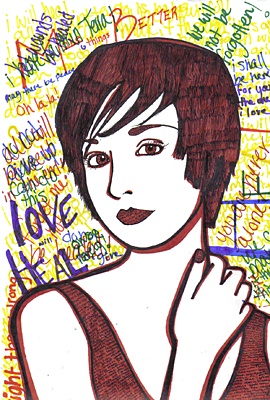All Nonfiction
- Bullying
- Books
- Academic
- Author Interviews
- Celebrity interviews
- College Articles
- College Essays
- Educator of the Year
- Heroes
- Interviews
- Memoir
- Personal Experience
- Sports
- Travel & Culture
All Opinions
- Bullying
- Current Events / Politics
- Discrimination
- Drugs / Alcohol / Smoking
- Entertainment / Celebrities
- Environment
- Love / Relationships
- Movies / Music / TV
- Pop Culture / Trends
- School / College
- Social Issues / Civics
- Spirituality / Religion
- Sports / Hobbies
All Hot Topics
- Bullying
- Community Service
- Environment
- Health
- Letters to the Editor
- Pride & Prejudice
- What Matters
- Back
Summer Guide
- Program Links
- Program Reviews
- Back
College Guide
- College Links
- College Reviews
- College Essays
- College Articles
- Back
Bitter Pills
At Pencey, making it to senior year has a survivor sort of feel to it. It’s a well-known and quickly learned fact that the school is not the right place for everyone, and even those who seem to embody the ideal Pencey student have as much a chance as any of us of failing to graduating. It is not unusual to come to class one day and see an empty chair only to find out through the grapevine that your classmate, or team member, or friend, or even roommate has left for home. By senior year, this sort of thing becomes commonplace. Still, that does not mean that it ever becomes easy to witness.
Rebecca was not my roommate, though she lived in my dorm and spent more time with me in her two months at Pencey than my roommate ever did. We had few shared interests, but I admired her charisma, her sense of humor, and her kindness – qualities which I later found she admired in me – so we became fast friends. What struck me as truly amazing about her was her seemingly boundless optimism which kept her aloft despite the difficulty of adjusting to hard classes and dorm life. But eventually, I watched as that optimism sank lower and lower and felt powerless to revive it. I was the one who she confided in after she self-medicated, the one who she asked not to tell anyone, the one who called poison control and the health center, the one who helped her pack her things and leave. Over the course of the next year, I was the one who stayed in touch with her from thousands of miles away, the one who campaigned furiously for her return to school. And when she finally came back nearly a year after she had left, I was the one she called to tell that she had done it again, the one who had to tell the school that she had overdosed again, the one who visited her in the hospital, and the one who helped her pack for the second time. But she was the one who had tried to hurt herself, the one who had been given a second chance, and the one who blew it.
And I knew that. So I stood there in silence the day before Rebecca left as she yelled that I had ruined her chance to go to college because public education was terrible in her home country. I ignored the scathing looks her friends gave me and waited for them to come around. When teachers pulled me aside to ask how I was, I answered “I’m fine, thanks,” and it was the truth. The problem was not mine, it was hers, and I wanted to know why.
This experience was transformative, to say the least. It awakened in me a wish to take care of others as well as an overwhelming need to understand what drives people, what makes them tick. It is fascinating that every move, every decision we make is controlled by our own cognitive and emotive processes, and yet we know very little about how they function. I want to know how the mind works, not to demystify it, but to provide explanations and solutions, because I know that if I can figure out why people do the things they do, I can keep them from doing things that might harm them.

Similar Articles
JOIN THE DISCUSSION
This article has 0 comments.
